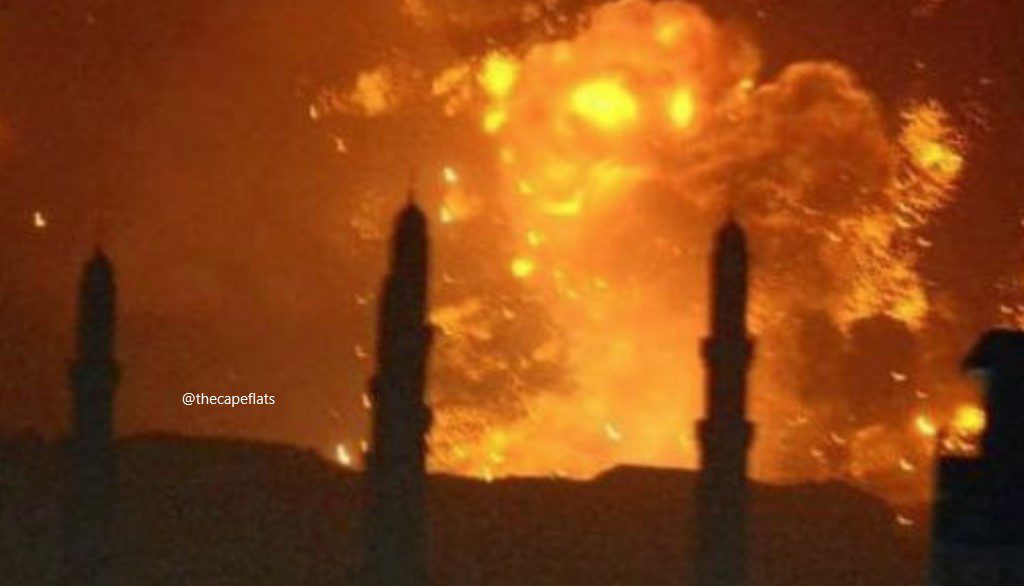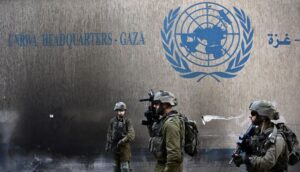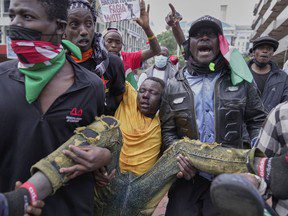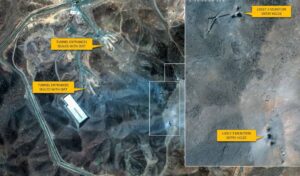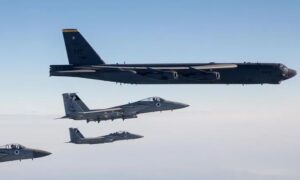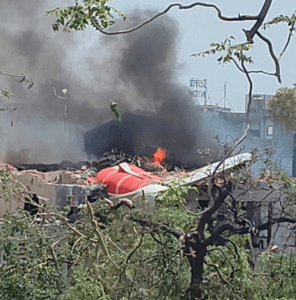In a contentious move, the United States and the United Kingdom have initiated airstrikes in Yemen in response to recent threats against shipping routes in the Red Sea and the Gulf of Aden. This article provides an overview of the situation and highlights the growing opposition to the military actions taken by America and its allies.
The Questionable Response
The airstrikes come as a response to the Houthi rebel group’s attacks on merchant vessels and naval forces. While the Houthi’s actions are undeniably concerning, the international community is divided over whether military intervention is the appropriate course of action.
International Concerns Mount
The airstrikes have been met with criticism from various quarters. Some argue that the use of force may exacerbate an already volatile situation in the region. Russia’s call for an urgent meeting of the UN Security Council reflects the global unease over the escalation in Yemen.
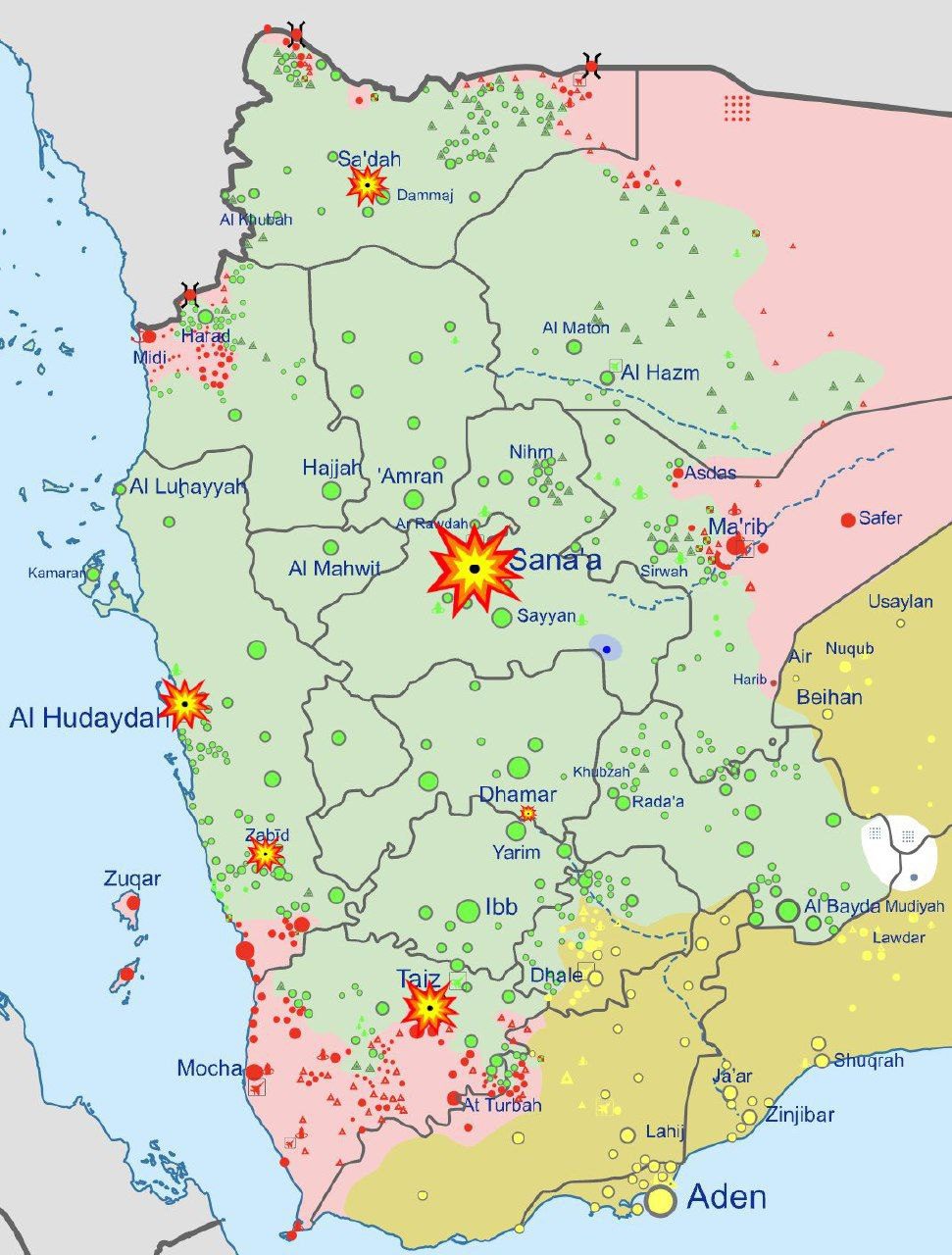
Differing Motivations Under Scrutiny
The motivations behind the airstrikes have also come under scrutiny. Critics question whether these actions are truly aimed at protecting shipping routes or if they serve other geopolitical interests. As international tensions rise, it remains crucial to assess whether military intervention is genuinely the best way to address the issue.
Consequences of the Airstrikes
The airstrikes targeted sites associated with the Houthi rebels’ military capabilities, which include unmanned aerial vehicles, ballistic and cruise missiles, coastal radar, and air surveillance. However, the potential fallout from these actions remains uncertain.
الان يتوسلون خفظ التصعيد
لقد اطلقوا الطلقة الاولى ونحن من سيحدد مسرح المعركة ولن يجدونا الا حيث يكرهون فلسنا ممن يخشى ويخاف امريكا
واضح
هنا اليمن
هوالله— عبدالسلام جحاف ـ Abdulsalam Jahaf (@jahafabdulsalam) January 12, 2024
“Now they are begging to de-escalate They fired the first shot, and we are the ones who will determine the scene of the battle, and they will only find us where they hate. We are not among those who fear and fear America. Clear Here is Yemen He is God”
International Diplomacy at Stake
While the US and UK defend their actions as necessary for self-defense, critics argue that diplomatic efforts should take precedence over military solutions. The international community must consider whether airstrikes are the most effective means of addressing the Houthi threat and safeguarding regional stability.
Houthi Resilience and Defiance
Despite the airstrikes, the Houthi rebels remain defiant and continue their attacks. Houthi spokesman Abdulsalam Jahaf has issued strong warnings against any party involved in the conflict, promising that they will “pay the price” for their actions.
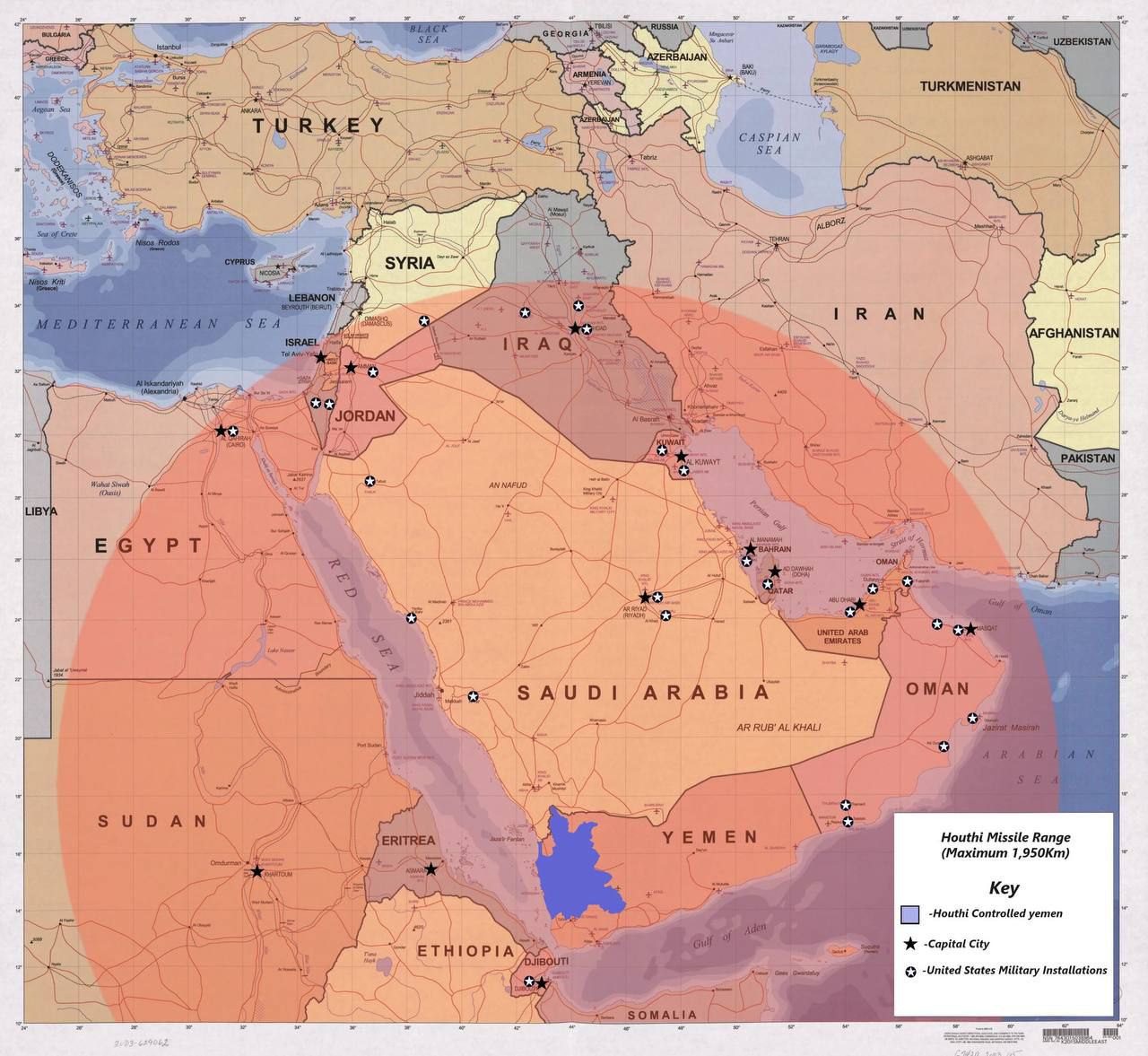
Early on Friday, Houthi spokesman Abdulsalam Jahaf revealed the airstrikes, stating, “Now America, Britain, and Israel are launching raids on Hodeidah, Sanaa, Dhamar, and Saada.” Witnesses in Sanaa reported at least three explosions, as reported by Reuters.
The Houthi’s Solidarity and Consequences
Officially known as Ansar Allah, the Houthi rebels had declared their solidarity with Gaza in response to Israel’s offensive against the Palestinian enclave. In retaliation, they targeted more than 20 shipping vessels in the Red Sea, a critical trade route connecting Europe and Asia via the Suez Canal. This prompted major shipping companies to reroute their vessels around Africa, leading to increased prices and insurance costs.
Countering the Threats
The US Central Command had previously announced its interception of over 20 missiles and drones aimed at vessels in the Red Sea. British Defense Secretary Grant Schapps expressed concern, saying, “We cannot have a situation where a major sea route, a major ability to move goods around the world is being cut off by terrorists and thugs, and we therefore must act.”
Houthi Defiance
In response to the threats from Washington and London, Houthi spokesman Jahaf declared that the Houthis would “respond to any American aggression” and vowed to make the US “kneel and burn its battleships and all its bases and everyone who co-operates with it, no matter what the cost.” He added, “The world must prepare to hear America’s defeat.”
The Broader Conflict
The Yemen conflict has been ongoing since 2015, with the Houthi rebels locked in a standoff with a regional coalition led by Saudi Arabia, which aimed to restore the previous Yemeni government. The United States had supported the Saudi-led coalition with intelligence and military supplies throughout the conflict.
In this unfolding situation, the world watches closely as tensions escalate in Yemen, potentially impacting global trade and security. The path forward remains uncertain, as the international community grapples with finding a resolution to this long-standing conflict.
Mixed Western Reactions
US President Joe Biden and UK Prime Minister Rishi Sunak assert that the airstrikes were a response to the Houthi rebels’ actions, emphasizing the need to protect freedom of navigation in these critical waterways. However, the absence of official statements from the White House and Downing Street leaves room for skepticism about the motivations and consequences of the military actions.
The airstrikes in Yemen have ignited a debate about the appropriateness of military intervention and the potential consequences of such actions. While some argue that these measures are necessary to protect shipping routes, others believe that diplomatic efforts should take precedence. The situation in Yemen remains fluid, and international diplomacy will play a crucial role in determining the path forward.
further updates to follow…

